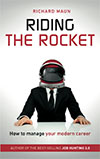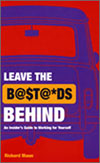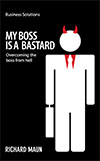better business blog
Tips and stories to add value to you and your organisation

Do You Have This Email Habit?
Let’s be honest. We all have habits. Our early morning coffe, or green tea in my case, for example. Perhaps you have to eat a ‘proper’ Sunday lunch each week, and would feel cheated with a lasagne, or a sandwich?
Habits can be helpful. They simplify our lives and remove the need to make choices. The same coffee. The same pizza topping. Regular watching of TV programmes. All help us to get through the week with a minimum of fuss.
Of course some habits can work against us. A glass of wine might help us to unwind after a stressful day, but is a second glass really so necessary, or just a habit?
Please don’t write in, you’re welcome to drink as much wine as you like. It’s your life!
Email is great. An instant, global postal service. I can remember being trained how to use email, 25 years ago, and wondering who I would possibly need to write to? If I wanted to talk to someone I’d pick up the telephone. Would email ever really catch on, I thought?
Well, it seems to. According to my dear friend Google, fount of all knowledge, figures suggest that in 2015 around 205 billion emails were sent every day. And only 3 of them weren’t spam. Haha, just my cynical little joke there. Ok, at least 12 weren’t spam. Accounting for useless messages, that’s still an awful lot of inbox pings.
Emails are useful and yet they can get in the way of office productivity. It’s fascinating to me that the post arrives once a day. We deal with it and then get on with our work. What we don’t do is pop to the Post Office and pester the post person there for another letter, or parcel.
We don’t turn up at 6am and demand to have our letters in our hand within 10 minutes of waking up.
We are content with a regular delivery. We are happy souls.
Our souls though seem to crave the excitement of email pinging. We often monitor our inbox for 18 hours a day, so we can curse at the workload, or get ahead of the pack.
Either way, if we have this bad habit; to constantly check our inbox, then we are reducing our productivity by more than we realise.
Every time we stop work and check for messages our brain has to wrench itself over to this new task. We might read a couple of messages and then go back to work, thus wrenching our brain back.
This constant flicking about is called ‘switching’ and it takes time for us to settle back into peak productivity. About 20 minutes, according to reputable research.
Therefore, although we might look and feel productive, we are actually working way below our ability for a big chunk of the day.
Many years ago a client group I was working with opted to switch off their email server between 11am and 3pm. They would answer emails in the morning, then settle down to sorting orders for despatch and then check their emails in the afternoon.
Customers didn’t mind at all, as the new system meant the team caught up with their backlog and deliveries were sent on time.
The team experienced less stress. Their work flowed and they were more productive.
Everyone was happy.
So, what’s the catch? There isn’t one. We don’t have to check emails every 10 minutes. We can leave them alone and block time to deal with them en masse. This reduces the amount of switching and our work rate will improve. We are being kind to our brains and kinder still to our customers and stakeholders.
So, this week, if you are in the habit of constant email checking then please think about doing it differently. Block time for emails and enjoy the freedom of leaving your inbox alone.
It might be the best time management tip of the year!
And your other little habits are yours. Enjoy them!
Next week: Skills Vs Traits
e-publishing
Click icon for details


recent posts
browse archive
books
Click cover to view details on Amazon
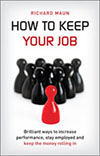
How to Keep Your Job
Brilliant ways to increase performance, stay employed and keep the money rolling in
Published 2011 Marshall Cavendish
208pp
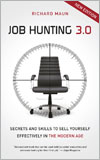
Job Hunting 3.0
Secrets and skills to sell yourself effectively in the Modern Age
Published 2010 Marshall Cavendish
260pp

 RSS
RSS